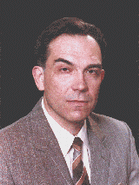 Pavel Vladimirovich Toulaev is a scholar and a writer, the editor-in-chief of the Russian international magazine “ATHENAEUM“. He is also the vice-president of Moscow department of “Synergy European” and a member of the Slavic Committee.. Toulaev is the author of more than 100 publications in different genres about Russia, Europe, Latin and North America.. Some of Toulaev’s works have been published in English, Spanish, German, French, Polish, Slovenian, Serbian, Ukranian.
Pavel Vladimirovich Toulaev is a scholar and a writer, the editor-in-chief of the Russian international magazine “ATHENAEUM“. He is also the vice-president of Moscow department of “Synergy European” and a member of the Slavic Committee.. Toulaev is the author of more than 100 publications in different genres about Russia, Europe, Latin and North America.. Some of Toulaev’s works have been published in English, Spanish, German, French, Polish, Slovenian, Serbian, Ukranian.Pavel Vladimirovich Toulaev is a scholar and a writer, the editor-in-chief of the Russian international magazine “ATHENAEUM”. He is also the vice-president of Moscow department of “Synergy European” and a member of the Slavic Committee. Toulaev was born in Krasnodar (1959) and is living in Moscow since 1970. By education he is an interpreter from Spanish, English and French (1981), Ph.D. in History (1985). In 1982-1992 he passed his postgraduate studies and worked as a researcher in the Institute of Latin America of the USSR. Then he worked in Spain (1992) and in the USA (1993/1994).
Toulaev is the author of more than 100 publications in different genres about Russia, Europe, Latin and North America. The separate editions published in Moscow are: “The Cross over the Crimean” (1992), “Seven Rays” (1993), “Understanding Russian” (1994), “Franco: the leader of Spain” (1998), “Veneti: ancestors of Slavs” (2000), “Poletajev’s Russian Concert” (2005).
He is the editor of collections: “Russia and Europe: the Experience of Sobor Analysis” (1992), “Russian Perspective” (1996), “Barbarians” (1999), “The White World Futures” (2006) and authors’ works – “Philosophy of the Post-History” by Vitaly Kovaljov (1992), “Sermons” by Dmitry Dudko (1993), “How the Order Creates Wars and Revolutions” by Antony Sutton (1995), “The Priest of the North” by Sergey Yashin (2000); “Veneti: our ancestors” by Jozko Savli (2003); “The Federal Reserve Conspiracy (Russian version as Vlast dollara)” and “The Order of Skull & Bones” by Antony Sutton (2004); “Mother-Land” by Dobroslav; “Rhetra Treasures” by Andreas Gottliebe Masch (2006), “What are we fighting for” by Guillaume Faye (2007).
Some of Toulaev’s works have been published in English, Spanish, German, French, Polish, Slovenian, Serbian, Ukranian.
Interview by Delian diver with Pavel Tulaev, Moscow, March 18, 2008
Delian diver: There is a lack of information about Russian identitarian movement in Czech republic. Can you briefly describe its history since 1991? Or were there any active organizations (or persons) even in times of USSR?
Pavel Tulaev: First of all, I would like to thank you for the interest in the Russian ATHENAEUM Magazine and my personal works. We are glad to collaborate with a representative of the New Right movement in Czech Republic, because we consider your country one of the key forces in Central Europe.
Czechia traditionally played the leading role in pan-Slavic movement. In my library I have works of prominent Czech scientists and thinkers that influenced modern European thought, such as P. Safarik, F. Dvornik and L. Niederle, translated into Russian, and a wonderful album of Alphonse Mucha.
As for the history of the Russian identitarian movement, it began not in 1991, because the event that took place back then was only a political coup d’etat. Even in the Soviet era several prominent nationalist movements existed in Russia: Orthodox Church, national-patriotic societies, rusofilian art groups etc. The pagan (heathen) movement, which I represent, began with the works or Russian folklore scientists and slavists of XIX-XX centuries, such as A. Afanasiev, A. Fomintsyn, B.Rybakov and many others. Nowadays this Russian heathen line has been extended by the Aryan (Vedic) knowledge, represented in sacred texts and living tradition.
Nowadays there are a lot of political groups of Nationalist and Patriotic direction, of various ideological spectrum. The peak of political activity was in the mid 1990s, but with Putin coming to power, the state has taken some of our key ideas and slogans, and the activity of the nationalists declined. As a result, such organizations as “Pamyat” (radical Orthodox), RNE (National-Socialist), NNP (Russian Nationalist radicals), NBP (National-Bolshevik Party) and many others are now history.
As for the organizations that are active now, I would name NDPR (National-Democratic party of Rusia, led by A. Sevastianov), DPNI (Movement against illegal immigrants, led by Alexander Belov), “Great Russia”(led by Dmitry Rogosin and Andrey Saveliev)
The so-called “Russian March” held every year on Nov, 4 that gathers more than ten thousands supporters in different cities and towns of Russia – can be drawn as an example of our actions.
Delian diver: Your wife (Galyna Lozko) is one of the leading figures of heathenism in Ukraine. Is there any kind of heathen renaissance under way in Slavonic countries? Which Slavonic heathen movements are the most significant ones?
Pavel Tulaev: Yes, Galyna Lozko (Zoreslava) is really the most prominent leading figure of heathenism in Ukraine. She is an outstanding ethnographer with a PhD degree, an author of many important works, including “Europe Awaken” – a book devoted to the European pagan Renaissance. Besides, she has founded and registered at official level the Pagan’s Union of Ukraine (rodnovery), that is publishing “Svarog” Magazine in Kiev.
Together with my wife we have founded a pan-Slavic organization called “Rodovoje Slavyanskoje Vetche”, in which leaders of heathen movement and pagan priests from Russia, Ukraine, Poland, Byelorussia, Serbia, Bulgaria and other Slavonic countries take part. I recommend you to read about it at our multilingual portal www.ateney.ru or in our newspaper “SLAVA!”.
Delian diver: Are you in touch with organisations dedicated to preserving German/Nordic, Celtic or ancient Greek and Roman heritage?
Pavel Tulaev: Yes, of course we are. First of all, I would name the World Congress of Ethnic Religions (WCER), headed by Jonas Trinkunas, an outstanding explorer of the folk traditions in Lithuania.
Also we have direct connections with such organizations and magazines as “Message” (The Druids of France), “Nordische Zeitung” (Germany), “Toporzel” (Poland), “Svevlad” (Serbia), “ARMA” (Greece), “Tierra y Pueblo” (Spain), “Dulo Society” (Bulgaria), “Mesogaia Sarmatia” (Ukraine) and many others.
Delian diver: You suggest the replacement of Faye’s Eurosiberian vision by the idea of Euro-Russia where the Siberian area is to be swapped with White Russia and Ukraine. Who is supposed to be the strategic partner of Euro-Russia in future pan-Europe, and what role will the countries of central Europe play in this new continental block?
Pavel Tulaev: Above all, Guillaume Faye is talking about a futuristic project. It has become more concrete when he visited Russia after our invitation. As a result, I have managed to convince him that the notion of Euro-Russia would be more accurate in ethnopolitical sphere, because Russia is a historical subject, and Siberia is merely a geographical territory.
Naturally, for us, Russia is the heart of the continent. But, all in all, the project of EuroRussia presupposes a polycentric system , when every country, including Czechia, will be an equal partner within the new pan-European geopolitical structure. I mean EuroRussia, not just “United Europe”, because Russia has its own destiny and mission in the World.
As for the possible partnership, it will depend on the hierarchy of values, such as nation (ethnos), super-ethnos (family of the nations), race (ethnically similar nations) and White Civilization (that can be European or post-European in its essence).
Delian diver: What is your opinion on the USA and their white nationalist movement? Do you think the contemporary hysterical anti-Americanism (fed especially by far left) can be an obstacle on the way of Euro-American nationalist cooperation?
Pavel Tulaev: I always distinguished between modern predatory policy of the US (as an ally of Israel) and the American people, within which we have comrades-in-arms from White Nationalist movement. When I taught in one of the universities of the US in early 1990s, this statement was justified by my personal experience.
Not all of the Russian Nationalists, especially, the radical far-right ones, share the anti-Yankee hysteria, provoked by the lefts and the so-called “Eurasians”. Russia has traditionally good relations with America, and it will develop this geopolitical line, especially in the Far East and the Pacific, where China is the primary rival of both USA and Russia. But this does not diminish our pro-European strategy, because we are tied with Europe by historical and genetic connections.
Delian diver: How do you view the effort USA put into Turkey to join the EU? Is this effort the part of broader strategy of USA- their aspiration for Islam to penetrate Europe? How do you think this islamisation of Europe will be developing?
Pavel Tulaev: We do agree that the USA-NATO uses Turkey as a battering ram against the European community. The US counts on the radical Islamic organizations with the same purpose. They are the so-called counter-agents who are to create the local artificial and controlled conflicts. The islamization of Europe is a reality and a very serious threat.
As an answer to this, Russia proposes its own strategy against Islamic extremism, which is aimed at neutralizing the allies of Turkey, such as the Wahhabites and Albanian extremists. But simultaneously we are strengthening our relations with such partners as Serbia, Bulgaria, Armenia and Greece, despite of NATO’s attempts to destabilize the atmosphere in South-Eastern Europe.
Delian diver: Is the adjustment of Kosovo part of USA’s effort for further weakening of Russia, his allies and “disobedient” European states by the support of ethnic separatism?
Pavel Tulaev: The separation of Kosovo is one more step of the NATO’s strategy, aimed at dissolution of Yugoslavia and the Slavic World as a whole. After the reunification of Germany, Czechoslovakia and the USSR, whose heart was the union of Great Russia, Minor Russia (Ukraine) and Byelorussia, have been also divided in parts.
But this policy of supporting the separatism and autonomous states has another aspect: today Abkhazia (in Caucasus), Crimea (in the Ukraine), Basque Country (in Spain), Kurdistan (in Turkey), Breizh (in France) also stand for their independence. This process might lead to the dissolution of Maastricht’s Europe and will undermine the bases of NATO. This process may be continued in the USA and Canada, where Alaska, California, Texas and Quebec claim their rights for independence.
The history is a constant changing in types and forms of State. In a hundred years, the political map of the world will look far from the way it looks today.
Delian diver: Please, try to introduce us the pan-European movement Synergies Europeennes. Is Athenaeum regarded as its independent branch? Are there any differences between it and other European branches?
Pavel Tulaev: Synergies Européennes is a pan-European intellectual movement, led by our friend and constant correspondent Robert Steuckers from Belgium. The Russian ATHENAEUM is an independent review, that I am publishing with my colleges: Anatoly Ivanov, a polyglot translator and a veteran of Russian Nationalist movement, and Vladimir Avdeev, a famous writer and racial scientist.
Of course, there are many differences between us and other European branches, since every country has its own history and traditions. Moreover, each of the members of the Russian team has his own preferences and priorities. I am a Russian Nationalist and a pan-Slavist, Anatoly Ivanov sympathizes with Franco-Roman countries and Vladimir Avdeev is famous for his pro-Germanic sympathies. But we all work on the basis of principle of multiformity and harmonic unity of ideas.
Delian diver: Introduce us, please, the Slavic Committee as well. When did it spring into existence and who has been participating in its running?
Pavel Tulaev: The history of the Slavic Committee dates back to the mid. XIX century, when, as a result of growth of national-liberating movements in Europe (the so-called “Spring of the Nations”), the first historical congress took place in 1848 and gathered in Prague more than 300 delegates from fraternal countries. It stimulated the growth of Slavophilian sympathies all over the world. After that, some similar congress in Moscow, St. Petersburg and Belgrade took place.
In the Soviet times this ideological and cultural movement was banned, its leaders were repressed. But during the war with Hitler’s Germany, the ideas of Pan-Slavism were revealed. In the end of the war, even Stalin, mostly due to diplomatic reasons, had to call himself a Slavophile. In history, this ideology was partially realized by Joseph Broz Tito.
The New wave of Pan-Slavism began in the 1990-s, when the Soviet war veterans, who were disappointed by the dissolution of the Warsaw Treaty states, tried to organize new international organizations. These are: “Slavyansky Sobor” (The Slavic Council) led by a combat correspondent Nikolai Kikeshev (Russia) and the International Slavic Committee, led by Jan Minar (Czech Republic). I am an active member of the Russian affiliation of this organization.
Since then several prominent international congresses and conferences were held: in Prague, Moscow, Kiev, Minsk. We had a lot of support in Byelorussia, since president Lukashenko is leading a pro-Slavic policy.
After the initiative of many activists from Slavic countries, festivals of art and music take place.
The forms, acquired by the pan-Slavic movement are various and in this respect the “Rodovoye Slavyanskoye Vetche”, that we have organized with Galyna Lozko, is one of the forms this movement has acquired.
Delian diver: At the end please sum up your plans for the future..
Pavel Tulaev: This month I am publishing a very important album “The Native Gods painted by modern slavic artists” that included 230 colored illustrations, a special vocabulary and my introduction devoted to the history of heathen art in Russia. In spring I will publish a volume of reports after the conference “Europe and Russia: New Perspectives” (2007), as I did after the “White World’s Future” conference (2006). I am also preparing a special issue of “Slava!” newspaper, dedicated to the conference in Belgrad (2007), as well as the new issue of our “Athenaeum” Magazine. These materials will be partially posted at our multilingual website www.ateney.ru.
All in all we will continue the line of strengthening the brotherhood of the Slavic peoples and our cooperation within the White World. We are preparing a new conference in Bulgaria, in which the representatives of Czech Republic are also welcome to take place.
We are always ready for a positive and constructive collaboration within the framework of today’s laws and political correctness that does not abolish bravery of thought and reality of action.
In the name of our Native Gods!
Slava!
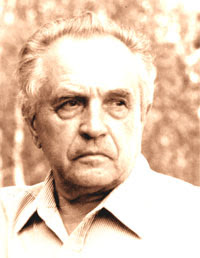
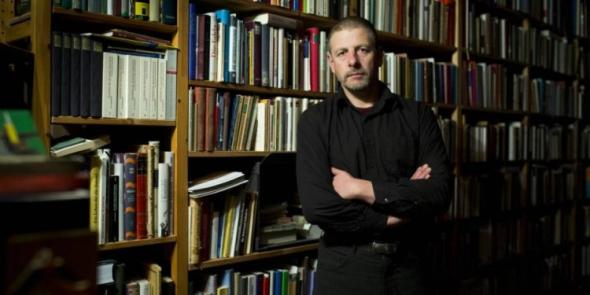
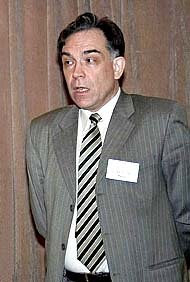
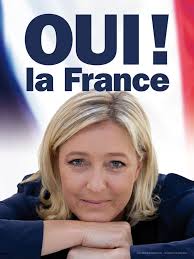
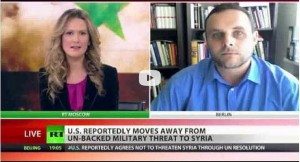
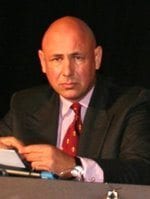
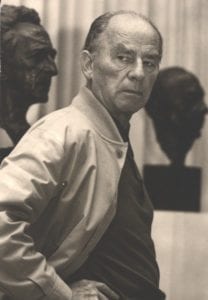
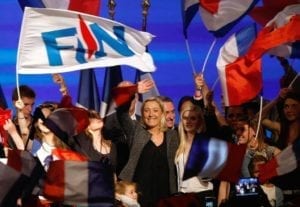
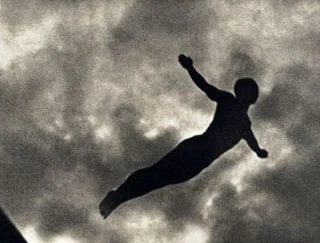 ***
***
V ČR je informací opravdu zoufale málo. Některé nepatrné zmínky lze nalézt v publikacích Politické strany Ruska, Politický systém Ruska, potom vím ještě o jakémsi článku v někdejším Týdeníku politika.
Jinak je případný zájemce odkázán výhradně na cizojazyčné zdroje, namátkou:
https://web.archive.org/web/20190506203305/http://evrazia.org/
https://web.archive.org/web/20190426145437/http://eurasia.com.ru/
https://web.archive.org/web/20091026182315/http://www.geocities.com/eurasia_uk/index.html
https://web.archive.org/web/20181014174555/http://arctogaia.com:80/public/eng/
https://web.archive.org/web/20090703191954/http://utenti.lycos.it:80/EurasianWebSite/dugin_mnb_eng.html
http://www.eurasia-rivista.com/
Nemáte prosím o eurasiatismu nějaké bližší info, nebo nevíte o něčem? V češtině až na pár drobných fragmentů pokud vím nic není